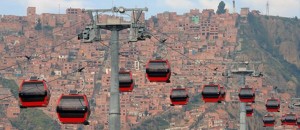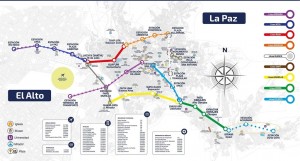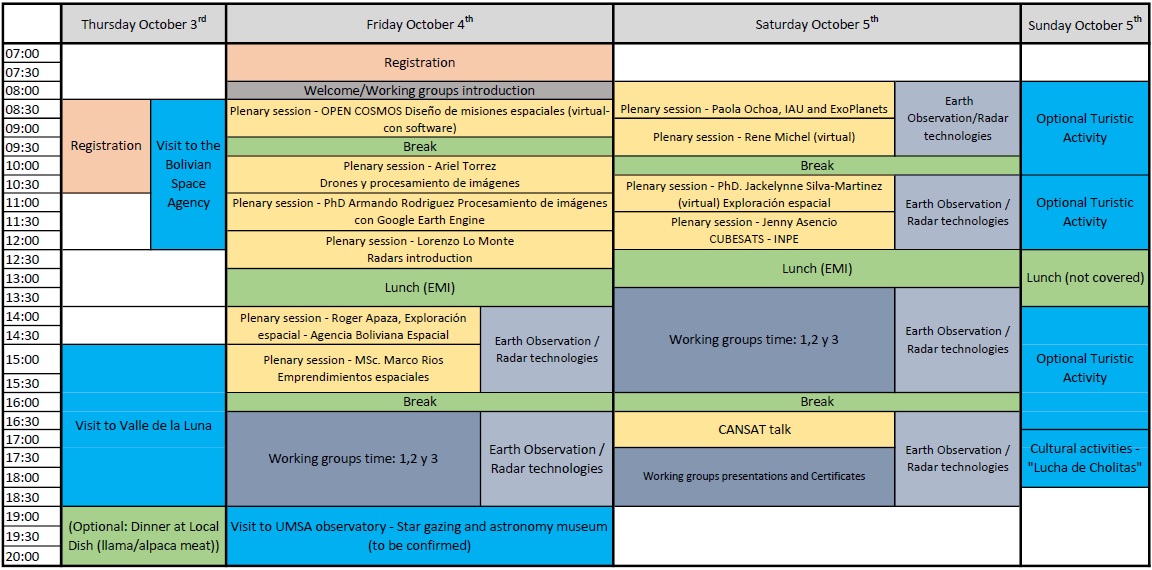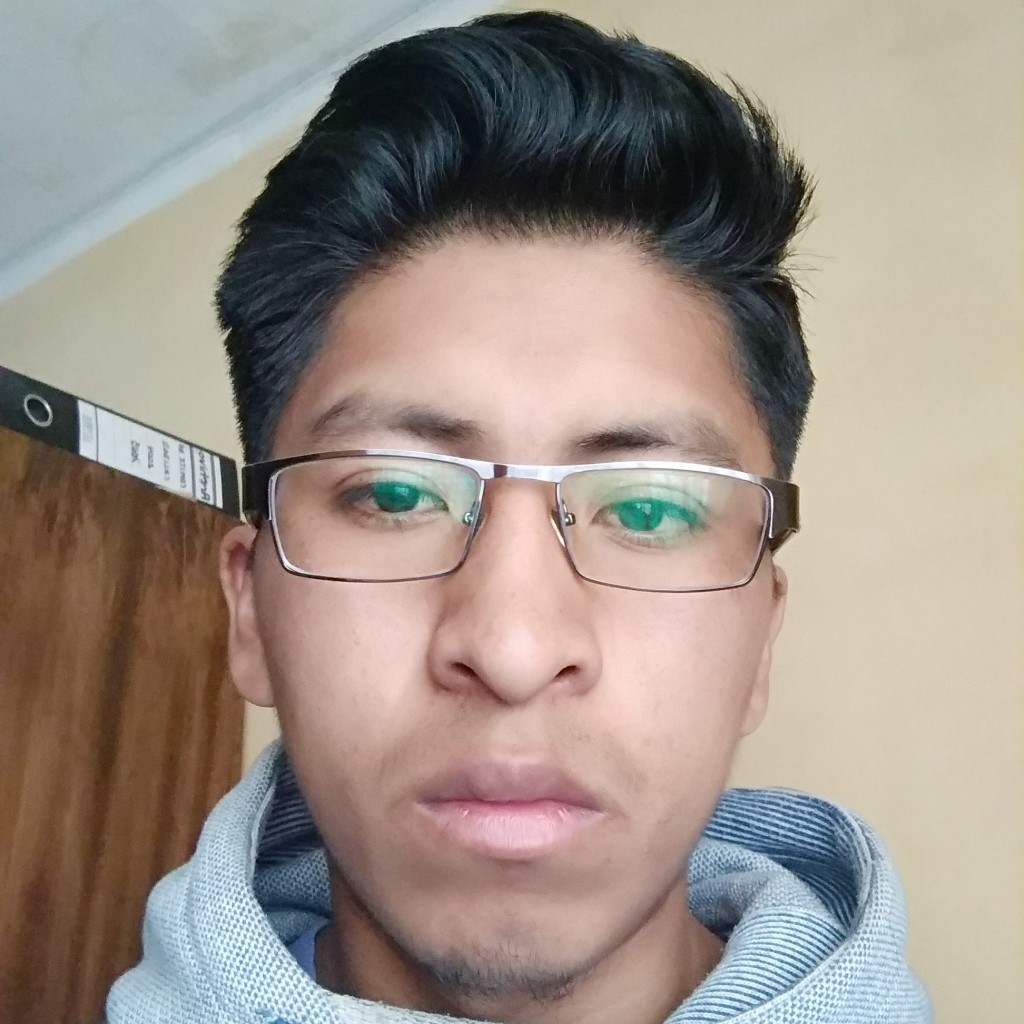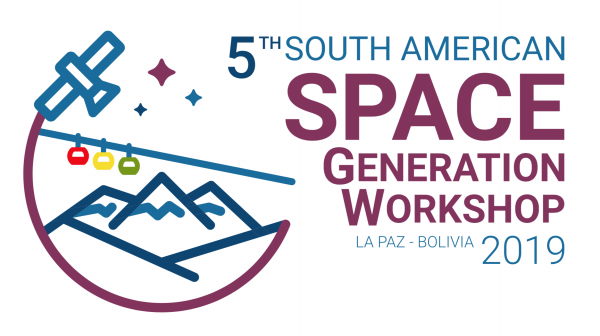
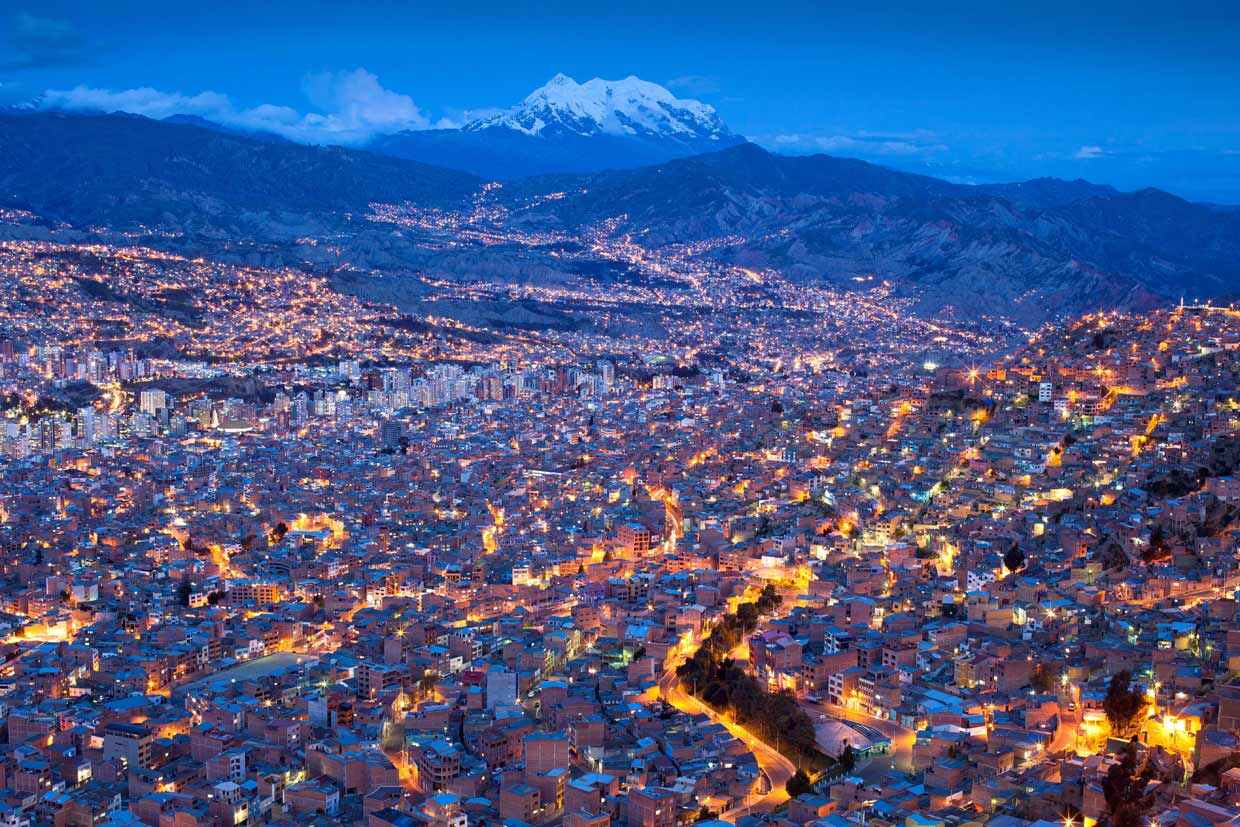
The 5th South American Space Generation Workshop (#SASGW19)
4th – 5th of October 2019
Escuela Militar de Ingenieria (Millitar School of Engineering)
Keep in touch in our facebook event: https://www.facebook.com/events/342196323146303/
This 5th South American Space Generation Workshop will take place in the wonderful city of La Paz Bolivia, this city is over the 3500m over the sea and the public transportation is as amazing as the city is. The cable car is one of the main public transportation to use in the city, want to live this amazing experience? Do not miss the opportunity to be part of the SA-SGW! apply now!
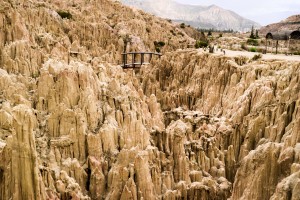
Moon Valley Cable Car (Red Line)
The host venue for the 5th South American Space Generation is the Militar School of Engineering (Escuela Militar de Ingeniería) which hosts a large number of events along the year related with engineering, new technologies, outreach and of course space.
Where is located the venue?
You can find the specific location in this link: https://goo.gl/maps/1UdYx3JMa4mMAZYL6
How to get there?
La Paz, uses mostly cable car transportation and the final stop of the green line is in front of the venue, more information can be found here: http://www.lapazlife.com/the-worlds-highest-cable-car-ride/
Do not miss this opportunity. Apply now!!
We are glad to announce the sponsors of the 5th SA-SGW, high rated organizations worldwide and also local ones.
Escuela Militar de IngenieríaLa Paz – Bolivia |
Sur-AerospaceCochabamba- Bolivia |
IEEE Bolivia |
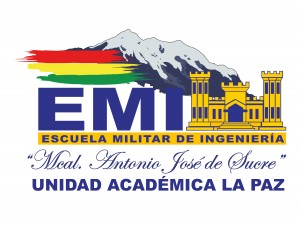 |
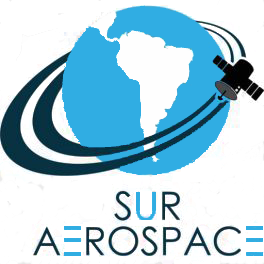 |
 |
US Embassy in Bolivia |
Spectral SolutionsLa Paz – Bolivia |
|
 |
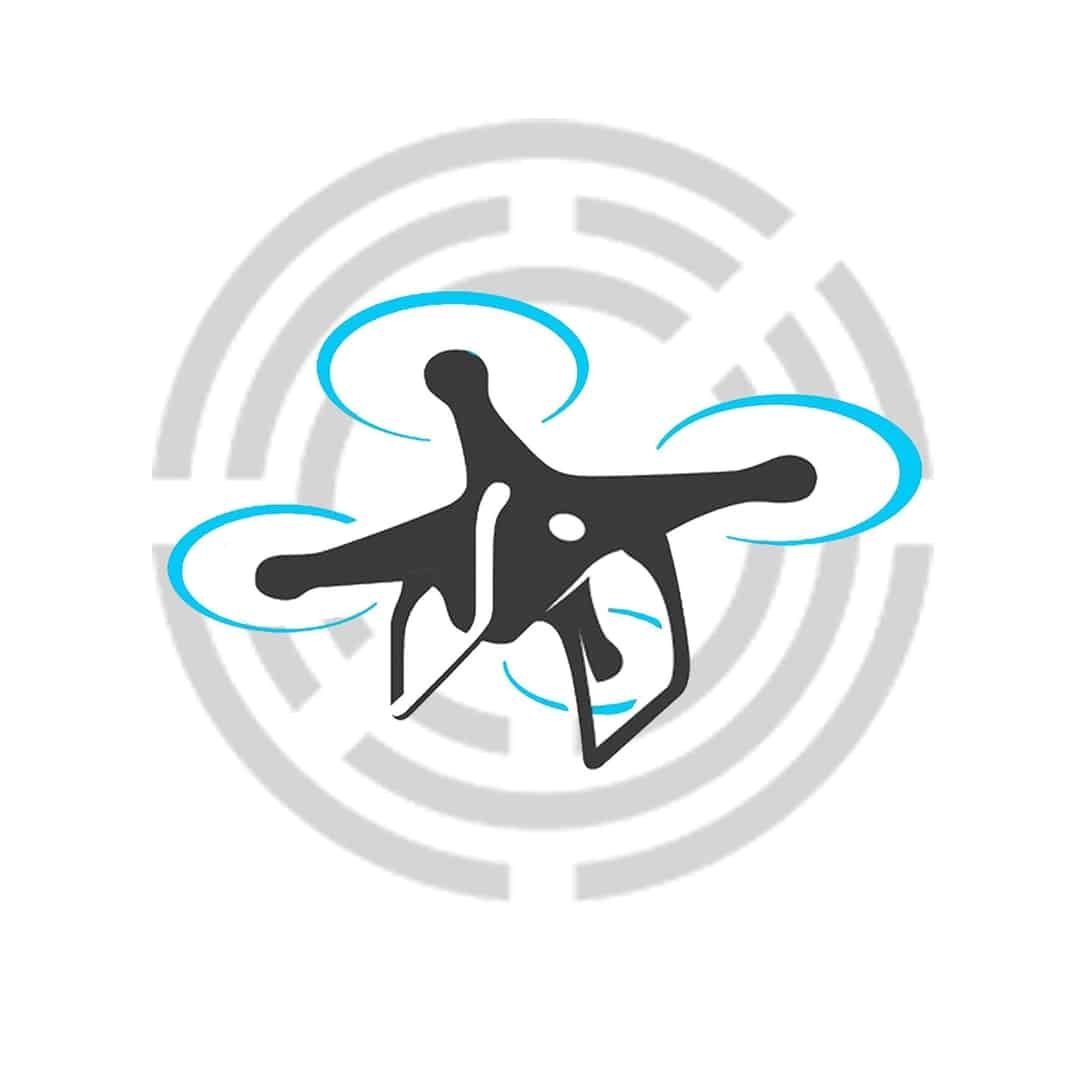 |
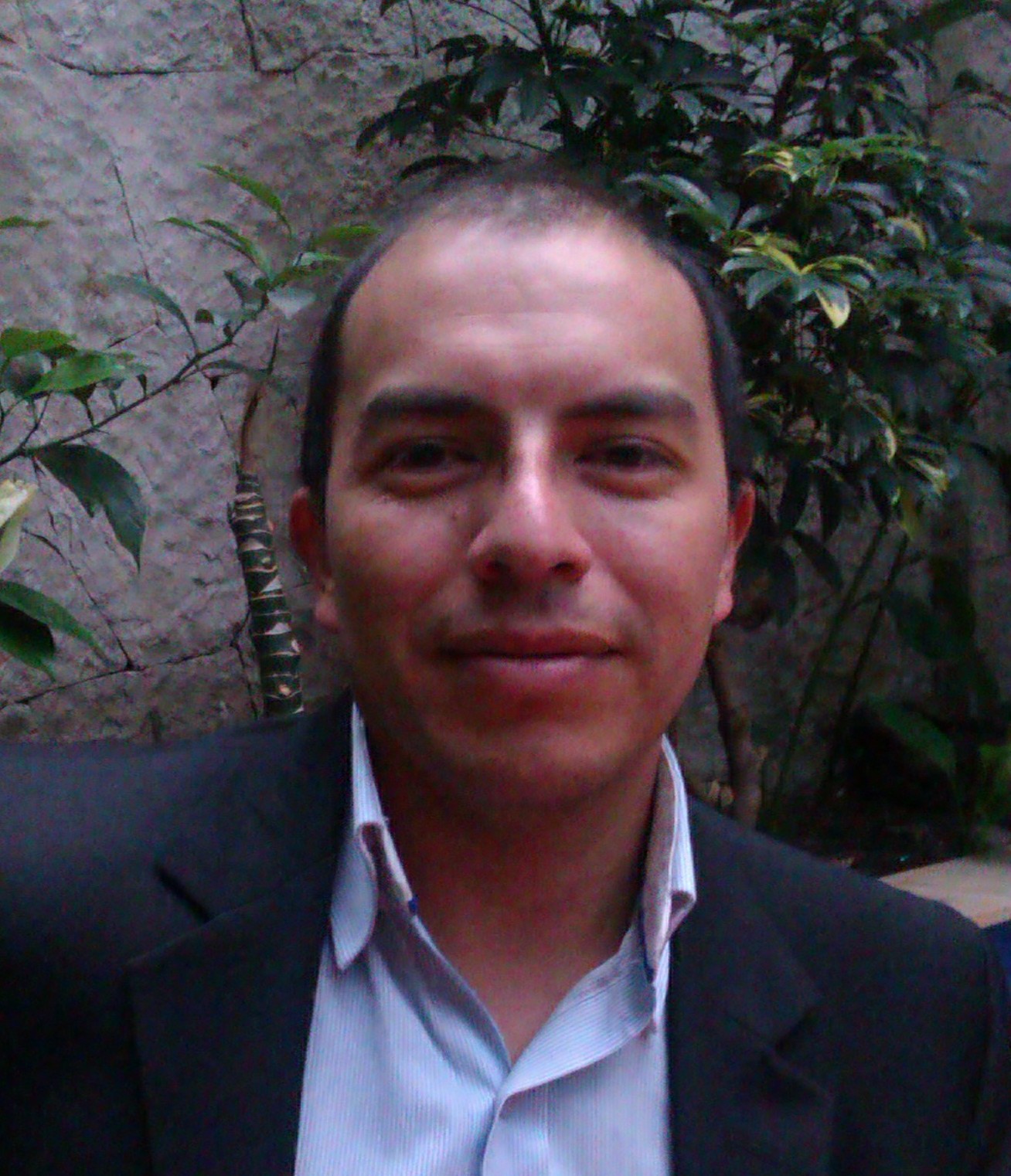 |
PhD. Jorge SolizMechanical Engineer (graduated from the Universidad Mayor de San Simón; Cochabamba, Bolivia), specialized in Aeronautics, has a Diploma in advanced studies in Aerospace Science and Technologies (Universidad Politécnica de Cataluña; Barcelona – España), has a PhD in Aerospace Sciences and Technologies, specialized in Space Sciences from the same University. Was an important researcher in several Universities in space topics, Space Missions Analysis engineer for the Galactic Suite project, Design and building of satellites at the European Space Agency and several Universities. |
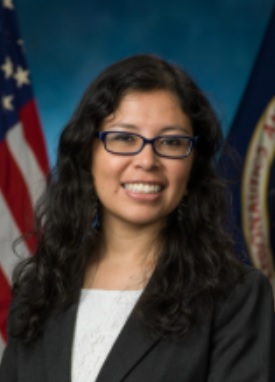 |
PhD. Jackelynne Silva-MartinezJackelynne was born in Cusco, Peru. She attended elementary school, middle school and part of high school at different cities within Peru, including Cusco, Arequipa, and Lima. Jackelynne obtained a Master’s Degree in Aerospace Engineering with concentration in Space Systems Integration at Georgia Institute of Technology. Jackelynne works at NASA Johnson Space Center in the International Space Station and Exploration Mission Planning Operations within the Flight Operations Directorate. She worked as a Mechanical Engineer and Test Operator at NASA Jet Propulsion Laboratory on the Robotic Manipulators and Deployable Booms group performing verification and validation ground tests for the Mars Science Laboratory, Curiosity Rover mission. |
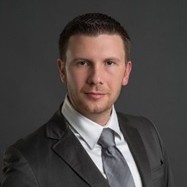 |
PhD. Lorenzo Lo MonteDr. Lo Monte has wide-ranging experience in applied Radar, RF, DSP, EW system design and prototyping, from small companies, consulting, academia, research institutions, to large defense contractors and government agencies worldwide. He serves as Chief Scientist at Telephonics, a top-100 defense corporation specializing in ISR, with the role of translating research innovations into commercial products. Prior to that, he was a Professor at the University of Dayton, and the Executive Director of the Mumma Radar Laboratory. Dr. Lo Monte has published over 70 peer-reviewed journal and conference papers and two book chapters. |
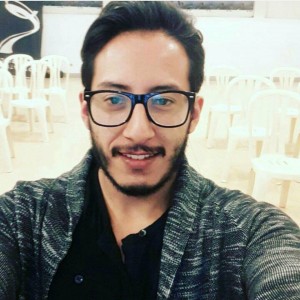 |
MSc. Marco RiosMarco Ríos is a bolivian engineer, he was borned in La Paz, Bolivia. Marco has studied Environmental Engineering and has a Masters degree in Management of Natural Resources, he is a specialist in spatial and territorial analysis from the biophysics and socio-economic perspective using Geographic Information Systems and remote sensing. Marco has worked in topics related to natural resources, biodiversity and society to perform studies before the implementation of projects as structural studies. He is the CEO and founder of “Spectral Solutions”, which uses UAV and GIS technologies for remote sensing and several other applications. |
You can be part of the event, in three different ways (3 parallel tracks):
A. Space Generation Workshop (Scholarships for South Americans available)
B. Radar Technologies Short Course (English only)
C. Earth Observation Short Course (Spanish Only)
Check out the program information:
- Space Generation Workshop
- Radar Technologies short course
- Earth observation short course
A. Space Generation Workshop:
We are glad and excited to share with you the working groups for the 5th SA-SGW
1.- La Paz, where Start-ups start much upper and Re-imagining our maps
2.- The Space Ripple Effect (Education)
3.- To infinity and beyond (analogue missions, asteroids, space exploration) and Space, your next innovation
B. Radar technologies short course
The radar short course will be completely in English, it will have 16 modules : History of Radar / Exemplar Applications, Radar Range Equation, Radar Cross Section and Clutter, Processing in Fast Time / Part 1, Processing in Slow Time, Detection Theory, CFAR, Tracking Radar Principles, Tracking Filters, Sidelobe Blanking and Cancellation, Electronically Scanned Array Technology, Adaptive Beamforming, STAP, Intro to SAR, Spot-Light SAR. ISAR, InSAR, Intro to EW.
The course will last 2 days from 9:00 to 16:00, breaks and lunches included.
C. Earth Observation short course
The Earth observation short course will be completely in Spanish, it will have theoretical and practical classes, the classes will range from: Uses of satellite images, tools and software used to process satellite images, use cases and examples of the use in satellite images in disaster management, urban expansion, projects and construction, and much more…
The course will last 2 days from 9:00 to 16:00, breaks and lunches included.
Registration to the SA-SGW 2019
| Application Open: | 1st July 2019 |
| Application Close: |
- Fees:
- Young Professionals: $30
- Students: $20 (discount $11.5 for host-student)
- Accepted delegates will receive a confirmation e-mail with a link to proceed with the fee payment
Scholarship
The South American Space Leader Award aims to recognise SGAC members for their contributions to the space field in South America as well as to provide opportunities to talented individuals to attend the 5th South American Space Generation Workshop (5th SA-SGW) from the 4th of October to the 5th of October 2019 to be held in La Paz, Bolivia.
Application Open: now!
Application Deadline: 31st July 2019 extended 15th of September 2019
Please note that Scholarship applicants also need to register to the workshop (see section above).
Note: You must be logged in to access the registration page. Please log in or create an account
If you want to be part of the short courses of the congress please check this webpage
** All fees cover lunches, coffee breaks and attendee kit (4th and 5th of October)
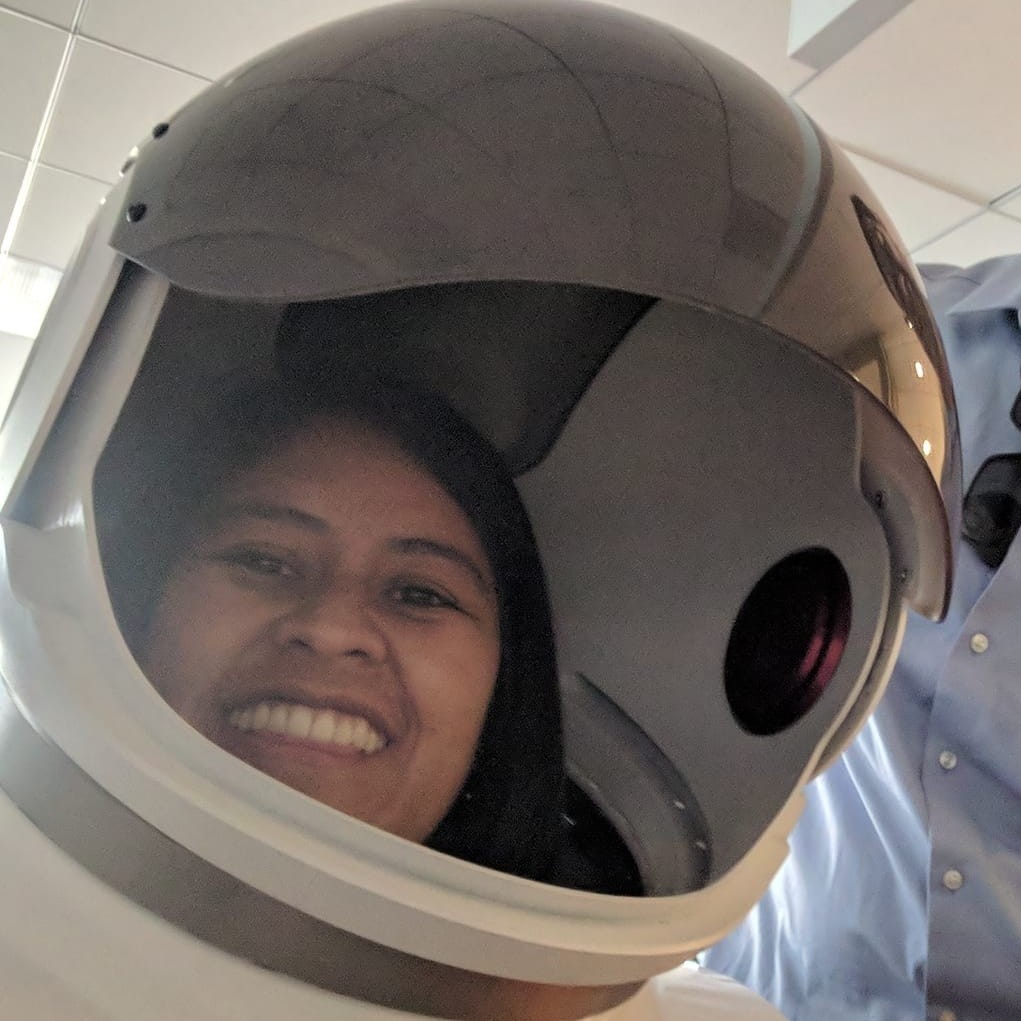 |
Paola EscobariHas a degree in Electronics Engineering from the Universidad Mayor de San Andrés; La Paz, Bolivia, has studied a Master degree in Microwave and RF communications in the University of Surrey; Guildford, England and is now working in the Bolivian Space Agency. Is the current NPoC of the SGAC in Bolivia and the event manager of the 5th SA-SGW to be held in La Paz, Bolivia. You can contact her at: [email protected] |
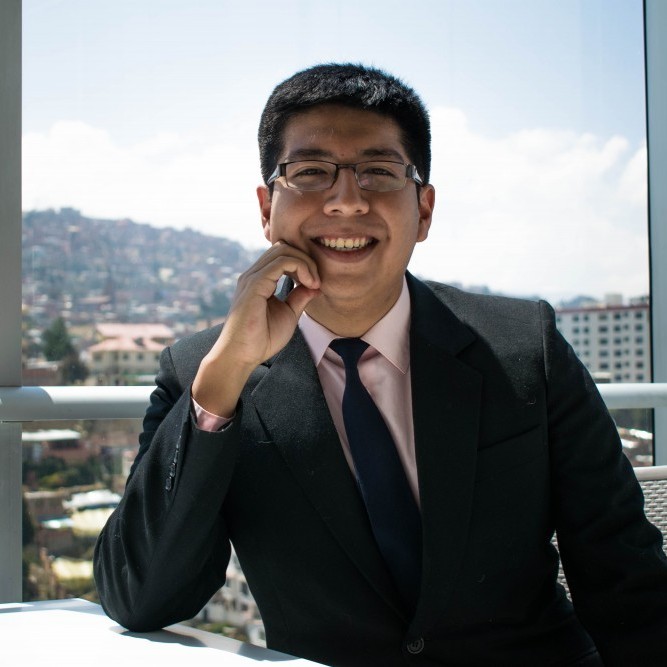 |
Ludving CanoIs a physics student from the Universidad Mayor de San Andrés; La Paz, Bolivia, is the national coordinator of the Bolivian Asteroid Search Campaign and works as a volunteer in Max Schreier Planetarium and Outreach Projects. NPoC of the SGAC in Bolivia and co-manager of the 5th SA-SGW to be held in La Paz, Bolivia You can contact him at: [email protected]
|
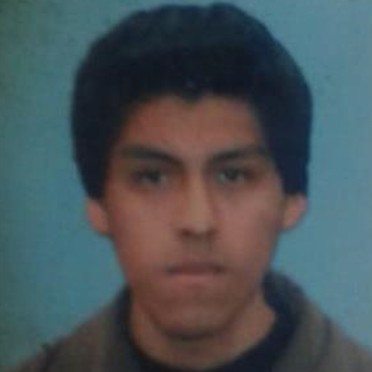 |
Alvaro Ruben Loa SeguraAlvaro is currently study last semester of Electronic Engineering in UMSA University. He is looking forward to finish college education and he would like to study satellite technology , especially, the space segment and digital communication systems. He regularly likes to receive telemetry from amateur radio satellites, which implies, the process of demodulation, decoding and study of the different protocols used by these satellites. He is currently research assistant in satellite technology at the Applied Electronic Institute of the UMSA.
|
|
|
Josoe Ernesto Ichuta TucoJosoe was born on 22 July, 1994 in La Paz Bolivia. Since he was at school he was really interested in technology that is why when he was in the 4th grade he started to study programming in C++ at CEC institute, In that course, he was very excited to apply math in programming, but then he realized that he needed to learn English, thus he applied for a scholarship to study English at the CBA and he won it. That is why he was part of two scholarships promoted by the US embassy in La Paz (English Access Microscholarship program and Martin Luther King program) for 3 years. After he graduated from Simon Bolivar School he started to study Electronic Engineering at University of San Andres. Now he is a teacher assistant at Electronics Applied Institute (IEA) which is an institute of research of the University of San Andres, here we are working on small satellite project where he is specifically working in the communication subsystem and the hardware of all subsystem; also he is doing his degree project to accomplish his bachelor degree. |
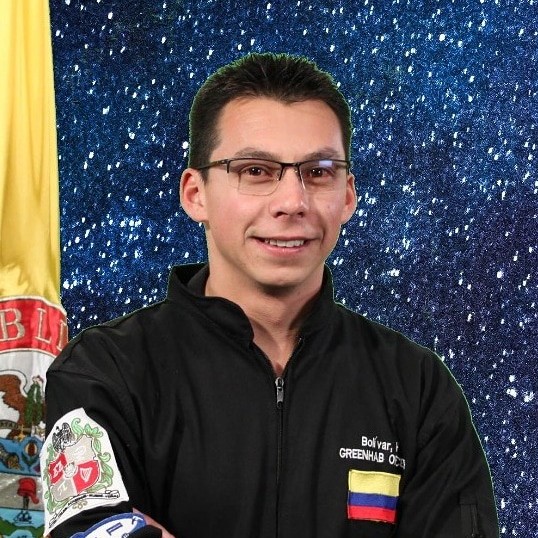 |
Hermes Hernan Bolivar TorresHermes is a biologist from Colombia. He studied at Universidad Nacional de Colombia and finished his career in 2017. Today, he is candidate for M.Sc. In biological sciences at Universidad Nacional Autónoma de Mexico (UNAM), Hermes has worked with the planetary science and astrobiology group from his university since 2013. His field of research has been the study of extreme environments, specially the ecological relationship of extremophiles microorganisms with this kind of environments and the future applications in biotechnology and space exploration. In 2018 he was an organizing team member for the 4th SA-SGW celebrated in Bogota. This year, He was part of the first Colombian crew in an analogue Martian mission in the Mars Desert Research Station (MDRS) In Utah USA. |
 |
Nicole JimenoShe is 20 years old and I am studying Geological Engineering at Mayor de San Andres University. She is a passionate person about science and research. She loves invertebrates paleontology and Astronomy and Astrophysics. This year she will represent Bolivia at the London International Youth Science Forum in London, Uk and she will be in a CERN program in Switzerland.
|
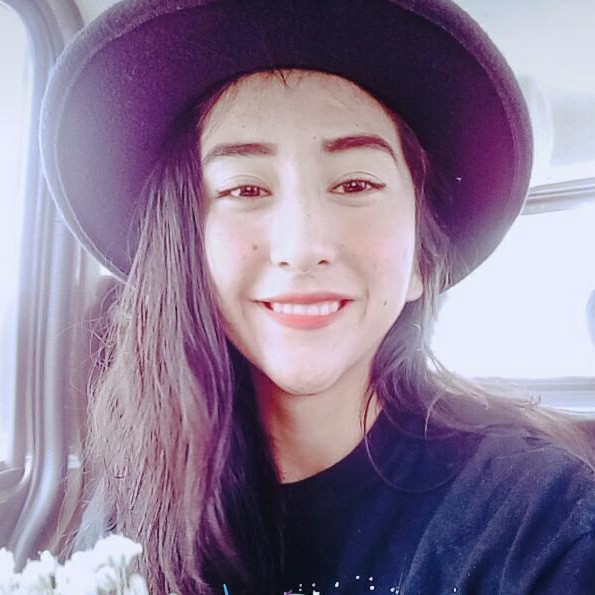 |
Paola MedranoPaola is in the first year of physics at UMSS and engineering telecommunications and networks at the UPDS in the city of Cochabamba, Bolivia. She has been participating in the astronomy and astrophysics Olympics from 2016 to 2018. In this year, she was part of the Bolivian Olympic team in the Latin American Olympics of astronomy and astronautics. She aspires to study astrophysics and promote science in Bolivia.
|
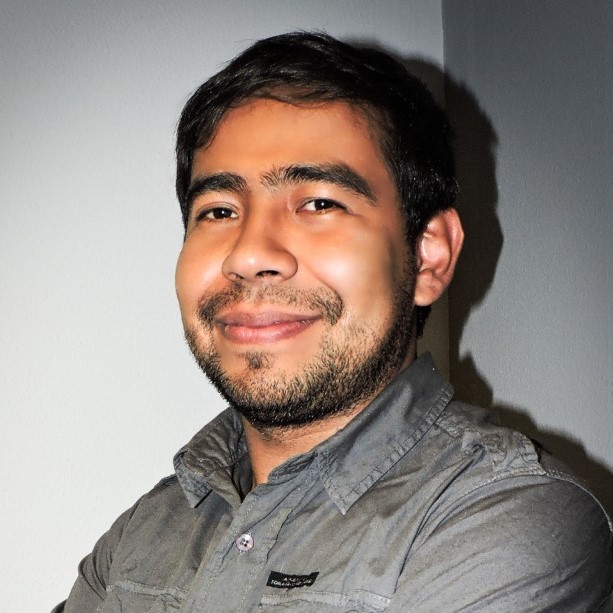 |
Rene MichelRene was born in Tupiza-Bolivia, joined EMI in La Paz where he studied Engineering. Currently he works at SES, Luxembourg, as Project Engineer.
|
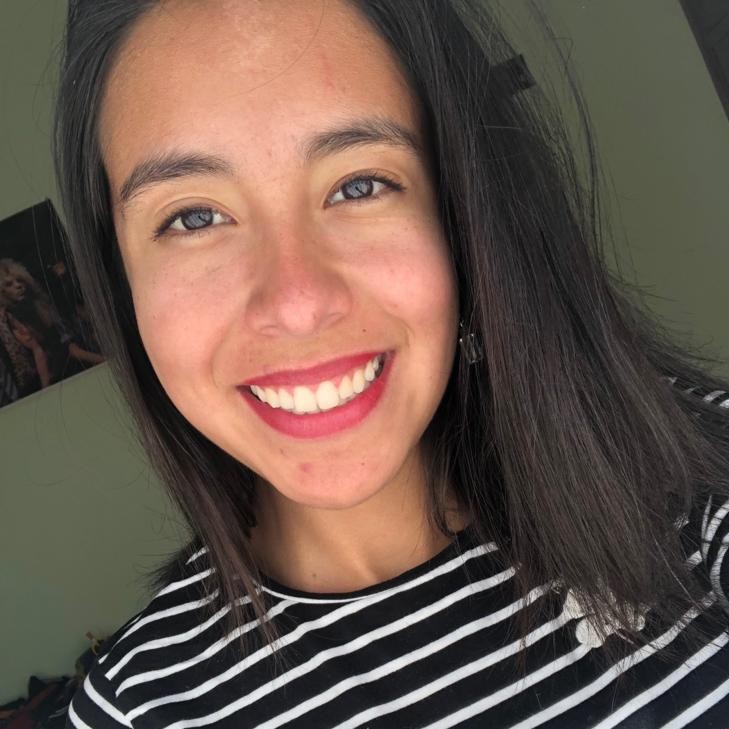 |
Samantha LobatónSamantha is 17 years old, she was born in La Paz, Bolivia, actually she is on her physics freshman year at Universidad Mayor de San Andrés, she has lot of interest on space areas, to be specific on space medicine and space technology, in her free time Samantha likes to work with people groups doing volunteering. She loves interacting with people.
|
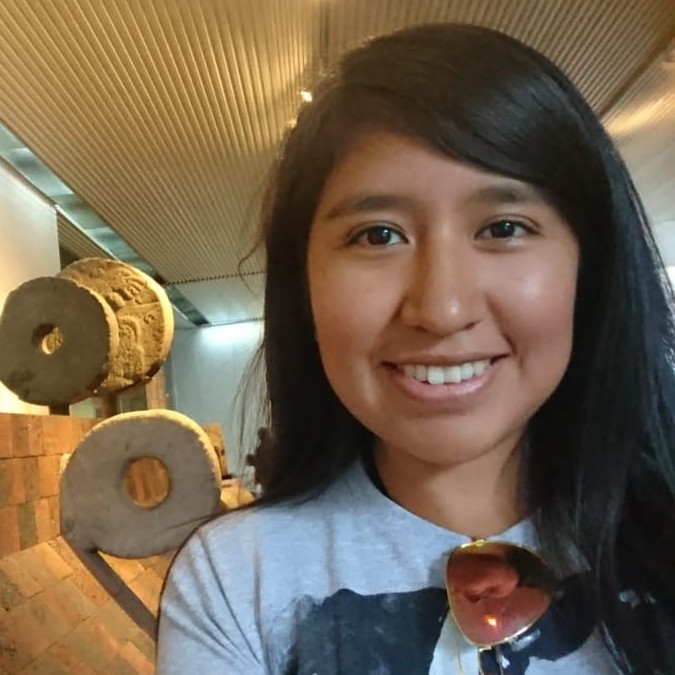 |
Tania Benadalid PacariTania is a student of Physics at the Universidad Mayor de San Andrés, lives in the city of La Paz, Bolivia. She has worked at Max Schreier planetarium for several years, she has also participated in the School of Observation Astronomy for Latin American Students (ESAOBELA, acronym in Spanish) made earlier this year in Tonanzintla, México. He has collaborated in different events of her career, both in social interaction and in research. She is very interested in studying the area of Astronomy.
|
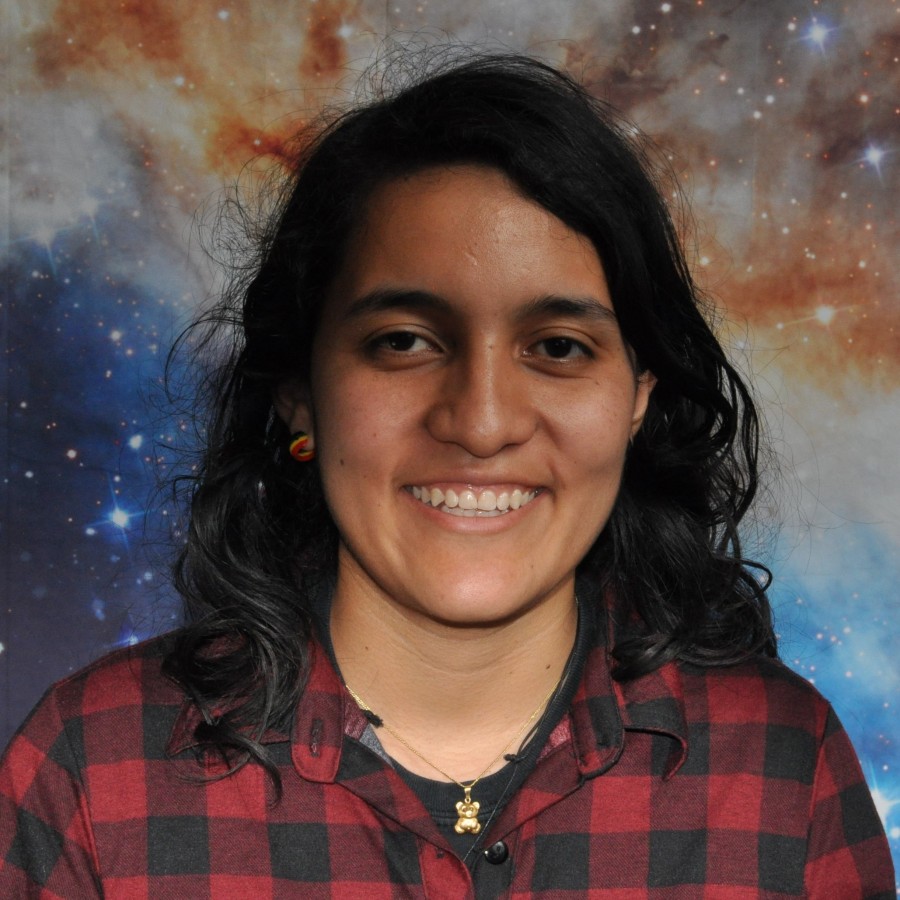 |
Laura I. Tenelanda-OsorioLaura is a Processes Engineer, senior student in Biology at Universidad de Antioquia and second year master student in Applied Physics with emphasis in quantum mechanics at Universidad Eafit, Colombia. Since 2011 she joined different astronomy outreach groups in Medellín, where her passion about space started. She focuses in astrochemistry and astrobiology, and throughout her career she has been able to work in different places such NASA-JPL, CALTECH and STScI, which have been valuable experiences that allowed her to know more about the field she is working on and to grow as a scientist. Recently, she participated in the Caltech Space Challenge 2019 – Encelanders, where she worked in a 16 people team to design a mission to land in Enceladus, from scratch to proposal. Currently, she is doing research in Enceladus, working in modeling hypothetical ecological niche in the moon. |
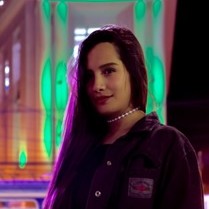 |
Michel W. Frias HerreraMichelle is a Bolivian engineer, She studied Ecological and Environmental Engineering, where she was able to expand her environmental knowledge and contribute to the events of the Department of Environment, participated in several National Congresses and Seminars as part of her training academic she has experience in the environmental engineering industry as a consultant and in carrying out expeditions with qualified multidisciplinary teams and as an exhibitor of safety seminars. She is currently a member of a National and International Multicultural and Linguistic Organization, also involved in social development activities of solidarity support with Social and Humanitarian Aid Foundations. Michel is enthusiastic in informing and engaging the general public in the activities of the space sector, since its future focus will be applied to Space Research and High Atmosphere in Space Technology Applications in Surveillance and Protection of the Natural Environment. |
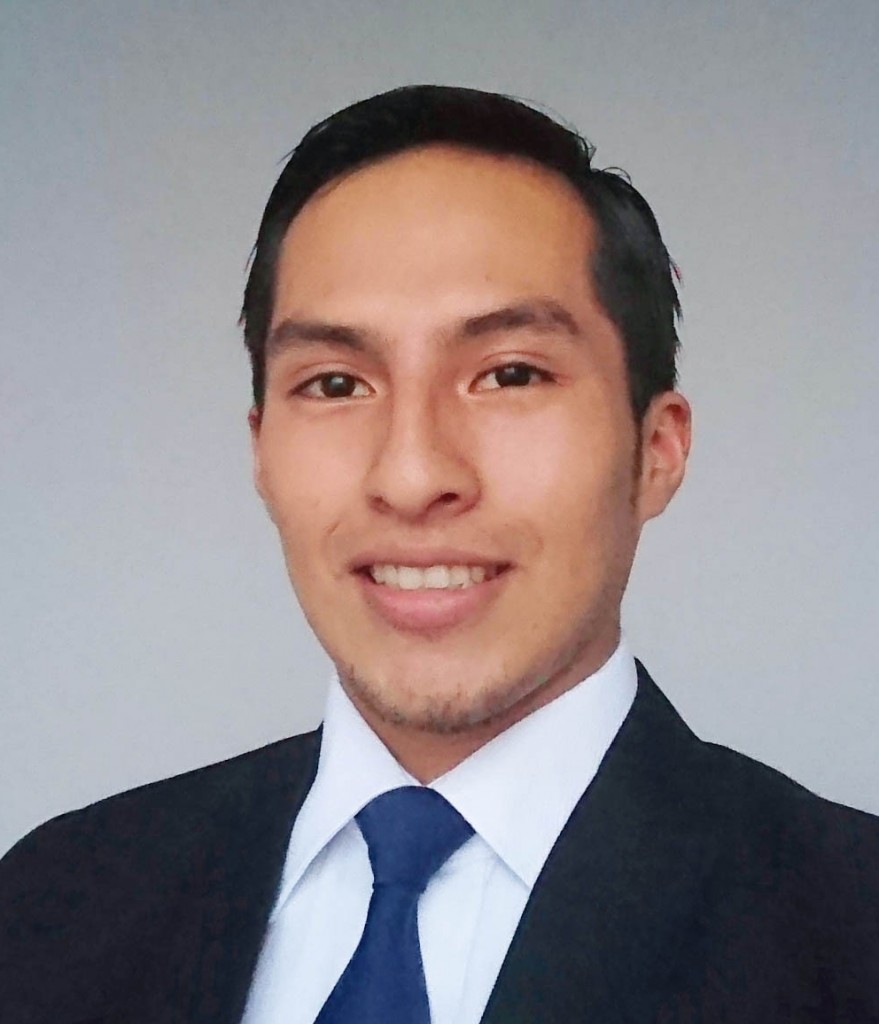 |
Jimmy GoraJimmy is a master candidate on Space Technology Applications under the APSCO MASTA Program, at Beihang University in Beijing-China. He received the SGAC South-America Space Leader Award 2018. Analog astronaut as an Executive Officer of Crew 150 “Team Peru III” at Mars Desert Research Station – MDRS (Utah, USA), performing a Mars simulation mission. His current research project covers disaster risk reductions, space robotics for space exploration, artificial intelligence and digital fabrication. He is an active volunteer at SGAC, previously involved in the SGF 2.0, SGC 2018 and SA-SGW 2018. Volunteering also at IEEE as Technical Committees’ Officer in Peru and Latin-America, and International Ambassador |

